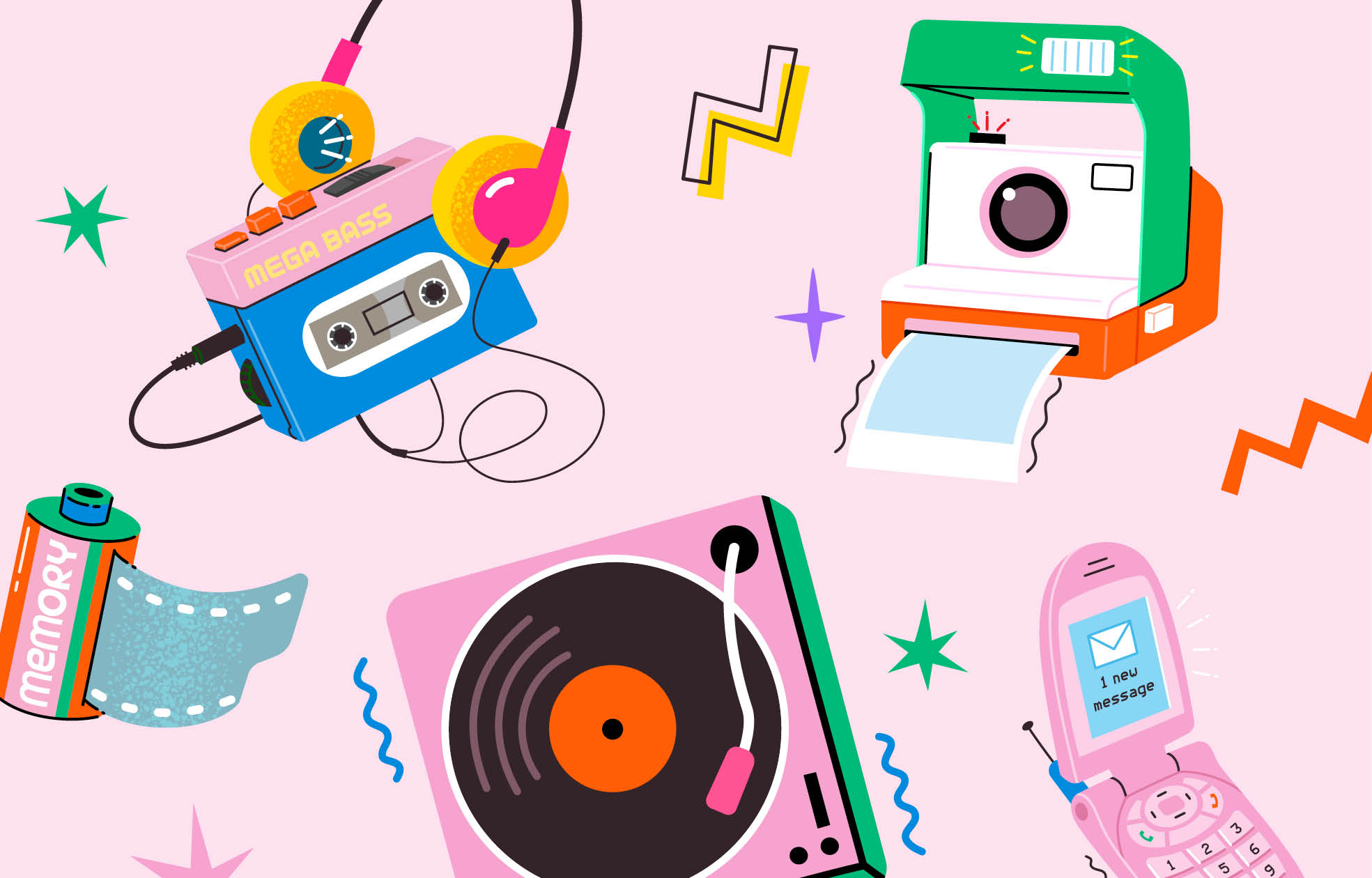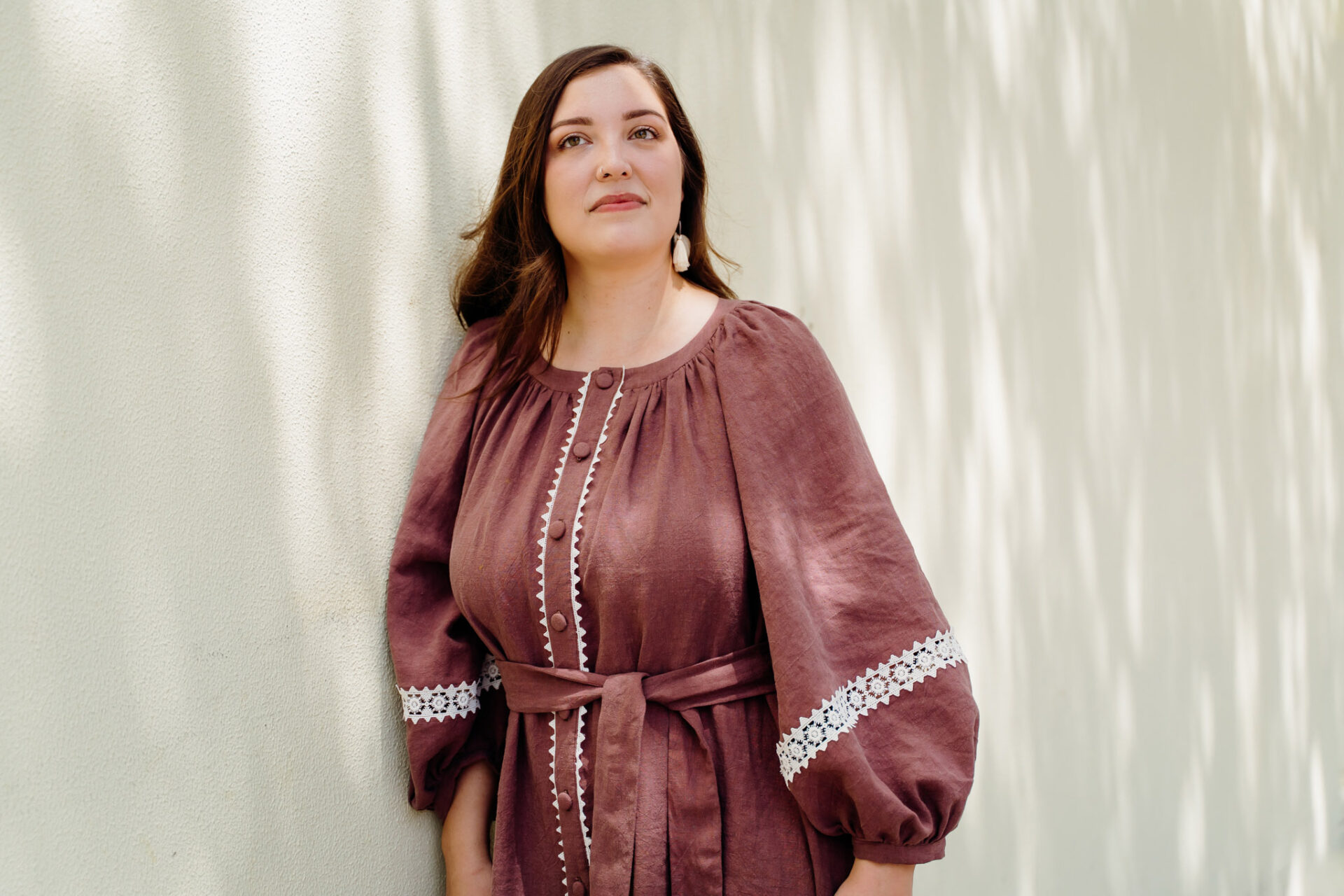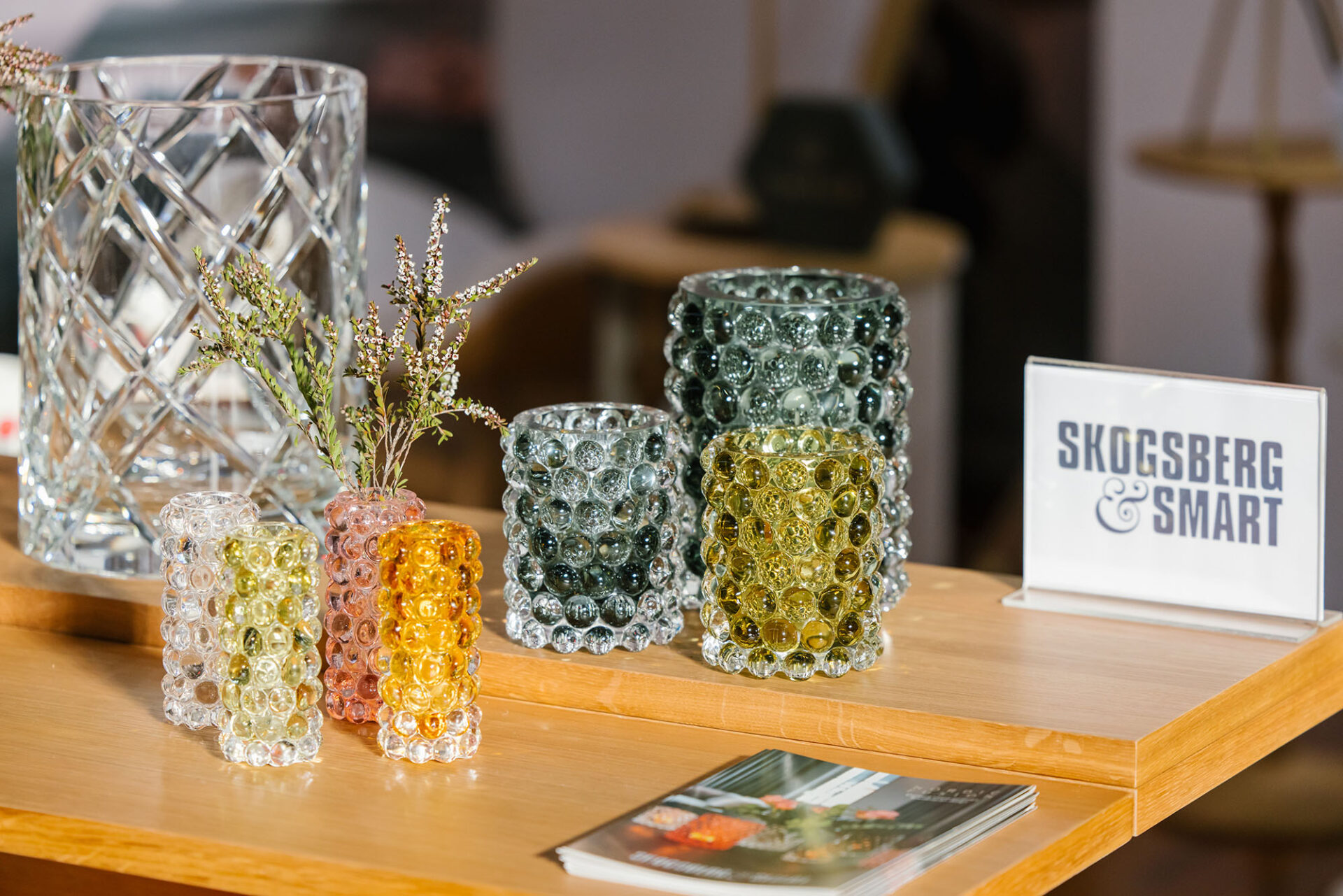Hannah Diviney on Calling in Beyonce to Now Making Waves on the Small Screen
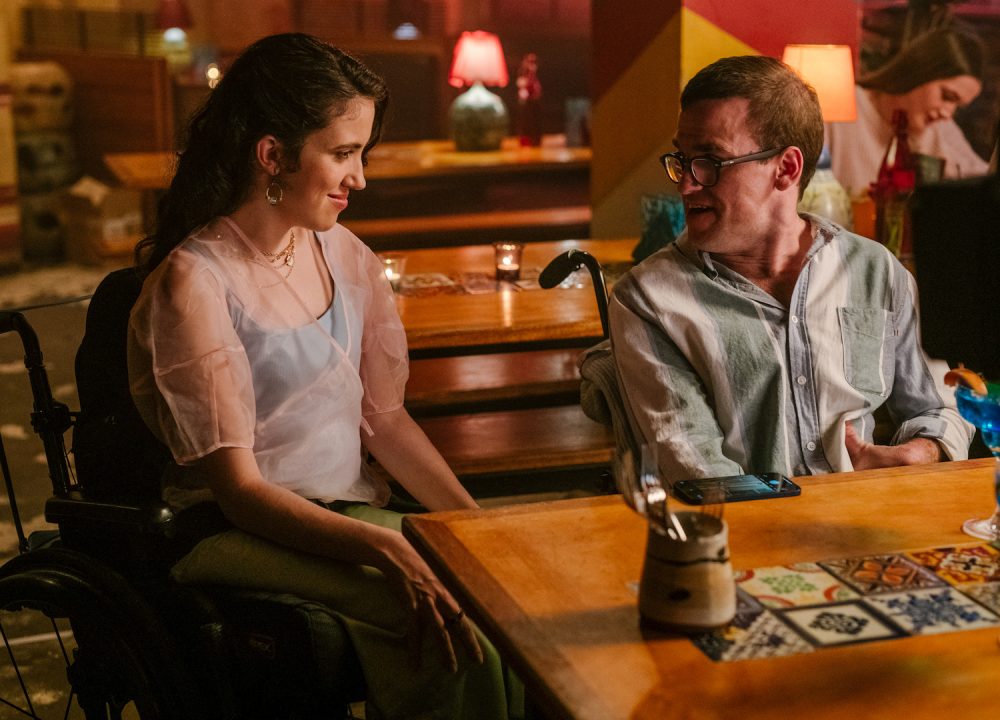
- Words by Peppermint
interview LAUREN BAXTER photos RENATA DOMINIK, COURTESY OF SBS
Hannah Diviney made headlines around the world earlier this year when she called in Beyonce and Lizzo for using ableist slurs in their lyrics. Now, the 23-year-old writer and activist, who has cerebral palsy, is making her acting debut, playing Sarah in the new SBS original series Latecomers.
Created by actor Angus Thompson and Nina Oyama of The Angus Project and writer Emma Myers, the series brings the intersection of sexual identity and disability into the foreground. For Hannah, who grew up watching the representation of disabled people limited to Paralympian success and road safety ads, the show’s opportunity to help change the narrative is huge. Ahead of the show’s release, we caught up with Hannah to chat about why ableism so often remains the “forgotten prejudice”.
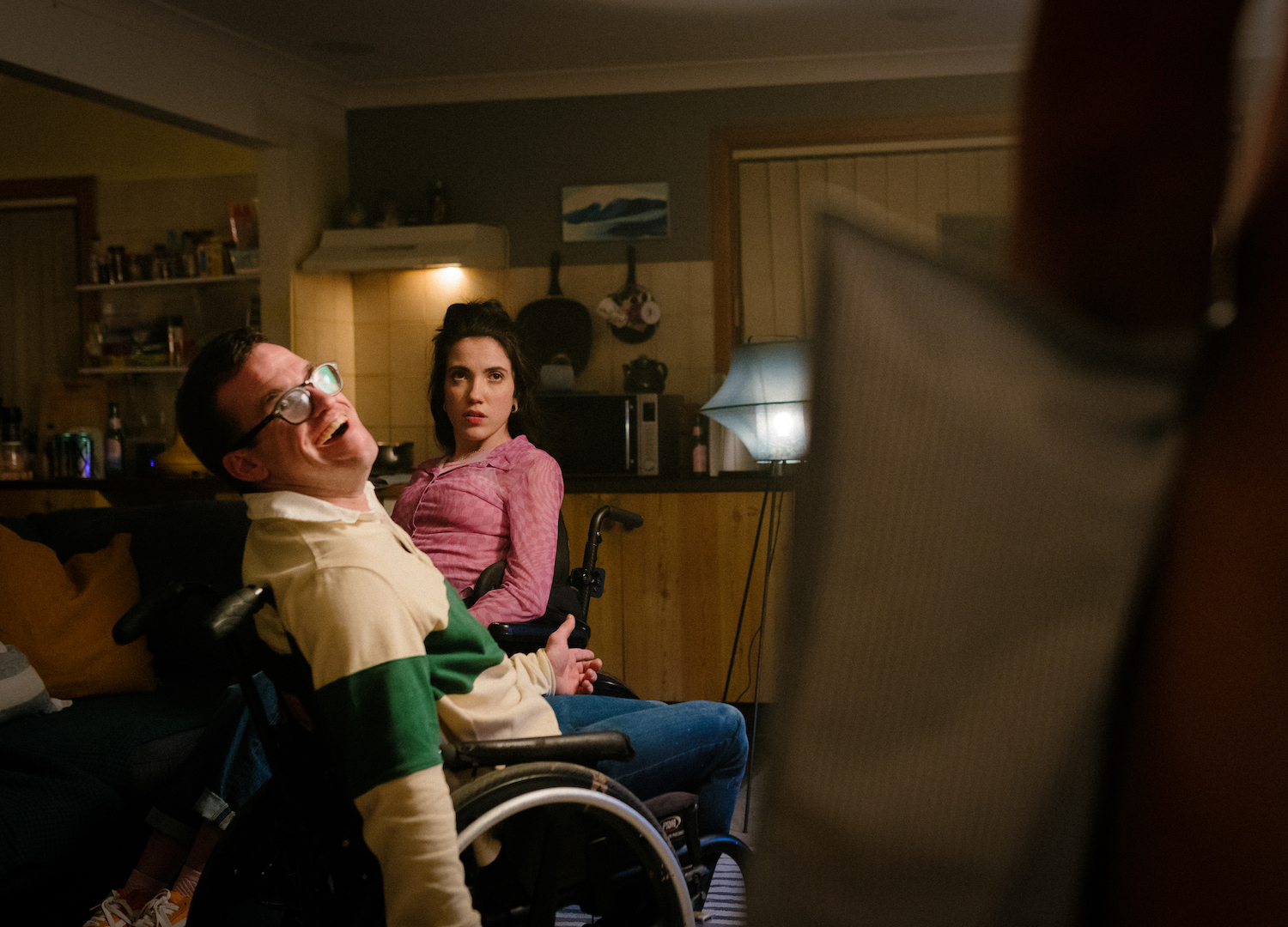
Can you tell me a little bit about your experience making the show and working with Angus, Emma and Nina?
Well, the way I ended up being involved with Latecomers is something of a happy accident. I just happened to get an email from Liam Heyen – one of our incredible producers. He reached out because he found me on Instagram and said, “Hey, SBS is creating this show. It’s written by people with cerebral palsy. It’s going to be about people with cerebral palsy. And we just need people to come in and read the parts so that Angus and Nina can hear what’s working in the script and what isn’t. It doesn’t mean that you have the part but it’s a workshop thing and we thought you’d be perfect because we want to make sure that any feedback we get is given by someone with lived experience of cerebral palsy.”
I was like, “Sure! Cool. I’ll go and read a TV show script. That’s amazing. Why not?” Always keeping in the back of my mind that it was going to be really cool and eventually, if and when the show came out and I was watching it at home with my family, I would be able to say, “Oh, I played the character of Sarah for a day and it was really cool.” I never in a million years imagined that Sarah’s face would be my face.
After the read – which was really funny and poignant and just really beautiful, like I loved the script – our incredible director Madeleine Gottlieb and our casting director Danny Long both came up to me and said, “So… you’re auditioning for the show,” and I was like, “I am?” They were like, “Yeah, you are because you can act.” And I was like, “I can?”
To get to do this, and to be the lead, and do something that is so provocative and groundbreaking and is going to open up a lot of conversations, I couldn’t imagine telling my younger self that this is what was coming.
I couldn’t believe that it was your first time acting. You were so good!
Oh, thank you. That means a lot. Like, I was definitely a drama kid. And generally, where there could be a stage, I would be on it doing something. But I never thought that acting was an avenue open to me, just because I knew, even as a kid, there weren’t really any disabled actors. If you saw disabled characters on screen, which was an absolute rarity in itself, it would generally be able-bodied actors playing disabled roles. So to get to do this, and to be the lead, and do something that is so provocative and groundbreaking and is going to open up a lot of conversations, I couldn’t imagine telling my younger self that this is what was coming.
That’s the perfect lead to my next question. What does representation like this mean to you? Obviously, I’m speaking from a position of absolute recognised privilege but I do feel like at least in my circles we’ve come a long way in terms of representation but recognising ableism seems to be lagging behind.
Yeah, I definitely feel that way too. And I think anyone who’s followed any of my work over the past year knows that I am all for leading conversations about ableist language and how important being aware of the words you say, and what they mean, is. But for me, I never saw anyone who looked like me in the movies I watched, the TV I saw, the books I read and the toys I played with. There was nothing. Essentially the two narratives of disability that I grew up internalising were Paralympic success, which only appeared every four years and was very much about triumphing over your disability. Keeping in mind, obviously, that in the early to mid-2000s, and like, even the early 2010s, we didn’t get near the amount of coverage and recognition that we do now. You were lucky if you got five minutes on the evening news about the Paralympics.
The other option, as terrible as it is to say, was road safety ads. Where life with a disability was very much presented as the worst-case scenario. Obviously, because the people making the ads wanted to make sure that people didn’t speed or drink drive or drive tired or whatever it might be. And in those circumstances, coming into life as a disabled person was very much presented as, “Your life is over. It’s a tragedy, blah, blah, blah.” But for me, someone who was born with a disability and will have it forever, I really struggled with the idea that my life was supposedly over before it even really started.
The first character that I ever saw who was disabled was Artie Abrams from Glee. I absolutely loved that in the beginning because he could sing, he was dancing, he had friends and he was exploring relationship storylines. He was doing all of these things and he had a disability. And for me, I was a pretty lonely kid growing up so I was like, “Ah, maybe when I get to high school, it will be different.” I mean, I also grew up with movies like High School Musical and Hannah Montana so I think my perception of what high school would be like was a little warped. I was very disappointed when people didn’t burst out in the song in the hallways. I still wish that was a real thing. But for me, that kind of changed and soured a little bit, I think it’s in season four of Glee I want to say. There’s a dream sequence that Artie has when he gets up out of his wheelchair. I remember being like, “Oh. Oh, no. He’s just wearing my life like a costume he can cast off as soon as the direct yells cut. That feels like a punch in the gut. He doesn’t know what it’s like.”
I really struggled with the idea that my life was supposedly over before it even really started.
As I got older it became increasingly obvious to me that was generally the case for most portrayals of disability in mainstream media. I think the disabled community refers to this phenomenon of “cripping up”, which is basically the idea that if an actor plays a disabled role, they’re fast tracking themselves for award success because of the amount of physical, emotional and psychological transformation that such a role takes. And obviously, there are instances where having someone who was actually disabled playing a role won’t work. Especially if someone has come into the disability later in life and you need to be able to show them as able-bodied before that happens. I’m thinking like Penguin Bloom and Me Before You. And also the other circumstance where I see that being impossible is in films like The Theory of Everything where obviously the nature of Stephen Hawking’s disability is that it got progressively worse. That limits the ability of actors with motor neurone disease to be able to play that because they can’t act above where their own disease is at.
But I definitely think that where you are creating stories about disability, you should always, always, always try and involve disabled actors, disabled creators, disabled crew and disabled directors. I also want to mention that although our show was mainly directed by Madeleine Gottlieb, episode two was directed by a wonderful disabled creative, Alistair Baldwin.
READ MORE – “Language Is Not Always Just Spoken”: Rarriwuy Hick Talks New Role for NITV
It’s not enough just to put disabled actors in the roles, right? It’s got to be across the board.
Absolutely and I think something that is so impressive about the way that Angus and Nina together, and Emma in this case, create is that they don’t sugarcoat it. They don’t shy away from showing you things that they know are going to make the audience uncomfortable. In fact, they do that quite intentionally. The decision to create a show that is essentially based around the intersection of disability and sexual identity is very intentional because that is a very taboo subject. I’m sure if you asked most people out and about in the world what they thought about disability and sex, their reactions would unfortunately be probably disgust or confusion or not feeling comfortable talking about it. So Latecomers really busted open the door on that one.
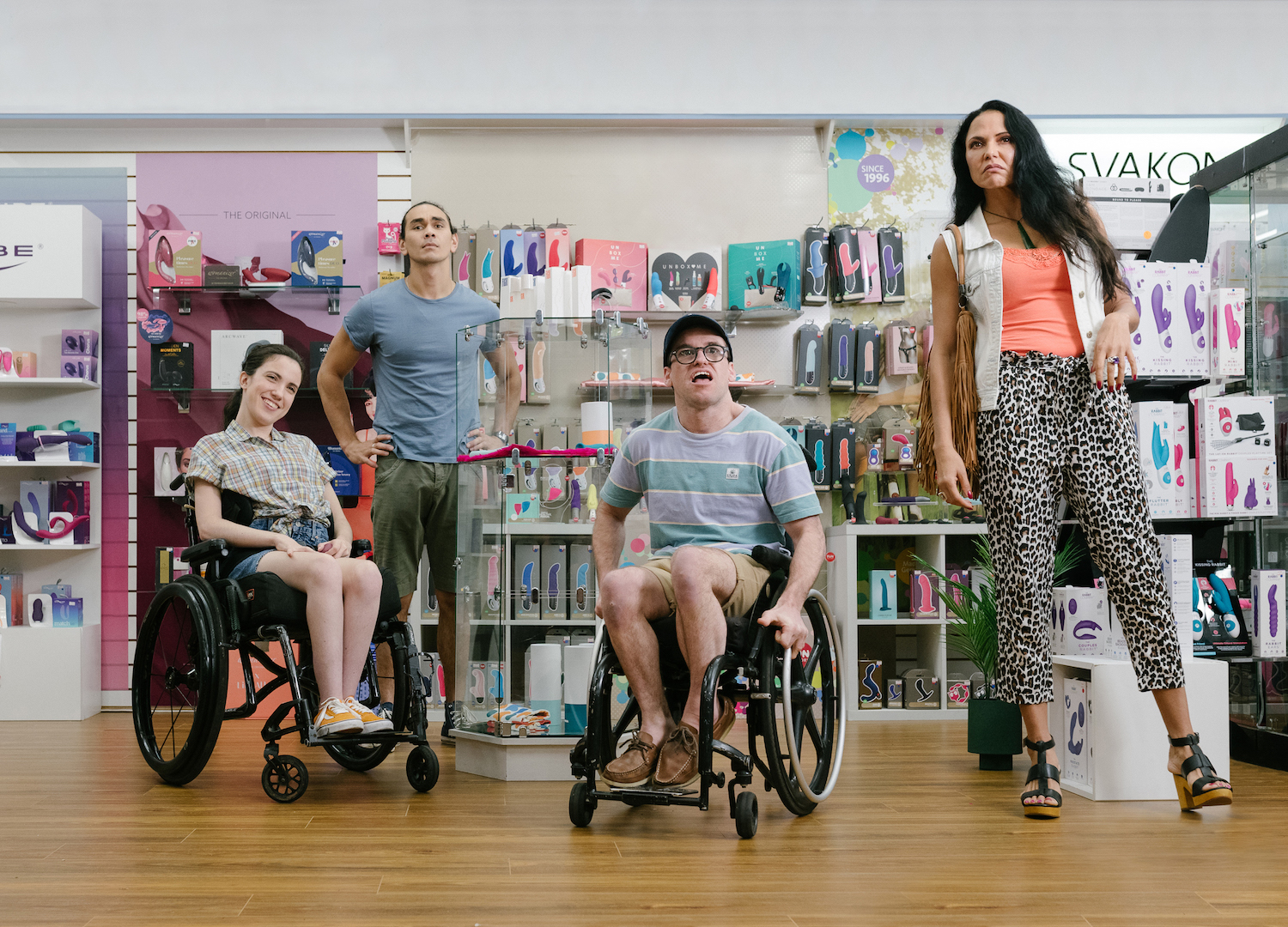
Yeah and also to just relate it to the fact that we all have these uncomfortable sexual experiences.
Yeah, we do. It’s so interesting that neither of these characters is ever told by anyone that they shouldn’t go for that. There’s a scene where Angus’s character Frank throws some of Sarah’s most deep insecurities viciously back at her, but there’s never anybody outside their experience that tries to say, “Well, that won’t happen for you.” That’s really refreshing.
Why do you think ableism is, to use your words, the “forgotten prejudice”?
I think because it’s unfortunately so ingrained in people’s vocabulary and in their way of moving through the world quite literally, they don’t even think about it. I have so many people say to me if ever they’re out and about with me moving through inaccessible spaces, like, “Oh, I didn’t even think that your wheelchair might not be able to fit in my car. Or that if the pavement is a bit uneven that would be hard for you. Or that crossing the road, where there’s a gutter and not a curb, makes it very difficult. Or that shop that we’re trying to get into is so narrow that you can’t fit through the doorway and sit comfortably.” I think, unfortunately, disability is still very much an area where if you don’t have the experience of knowing someone, or living with someone, or caring for someone, or being emotionally connected to someone who has that experience, you still don’t get it.
Representation has come a long way. We still have a long way to go but I’m really proud that Latecomers gets to be at the front of that.
And then going on from that, it’s pretty messed up that the emotional labour when it comes to calling in ableism so often falls to people with disabilities. How do you think we can move past that? And how do you see pop culture – pointing to people like Beyonce and Lizzo and shows like Latecomers – fitting into that?
I think it’s really important that obviously if an able-bodied person wants to be an ally, it’s important that they don’t speak over a disabled person, or that they don’t think that their take is more correct than a disabled person’s. But at the same time, that doesn’t mean you can’t speak with us. That doesn’t mean that every time you see ableism in pop culture, you have to tell us about it. You can just quietly say, “Hey, look. As an ally of the disabled community, I’m not really comfortable with this. I need you to understand that. I can recognise the harm that this is going to cause without having to expect the people who actually live with that harm every single day to handle it.”
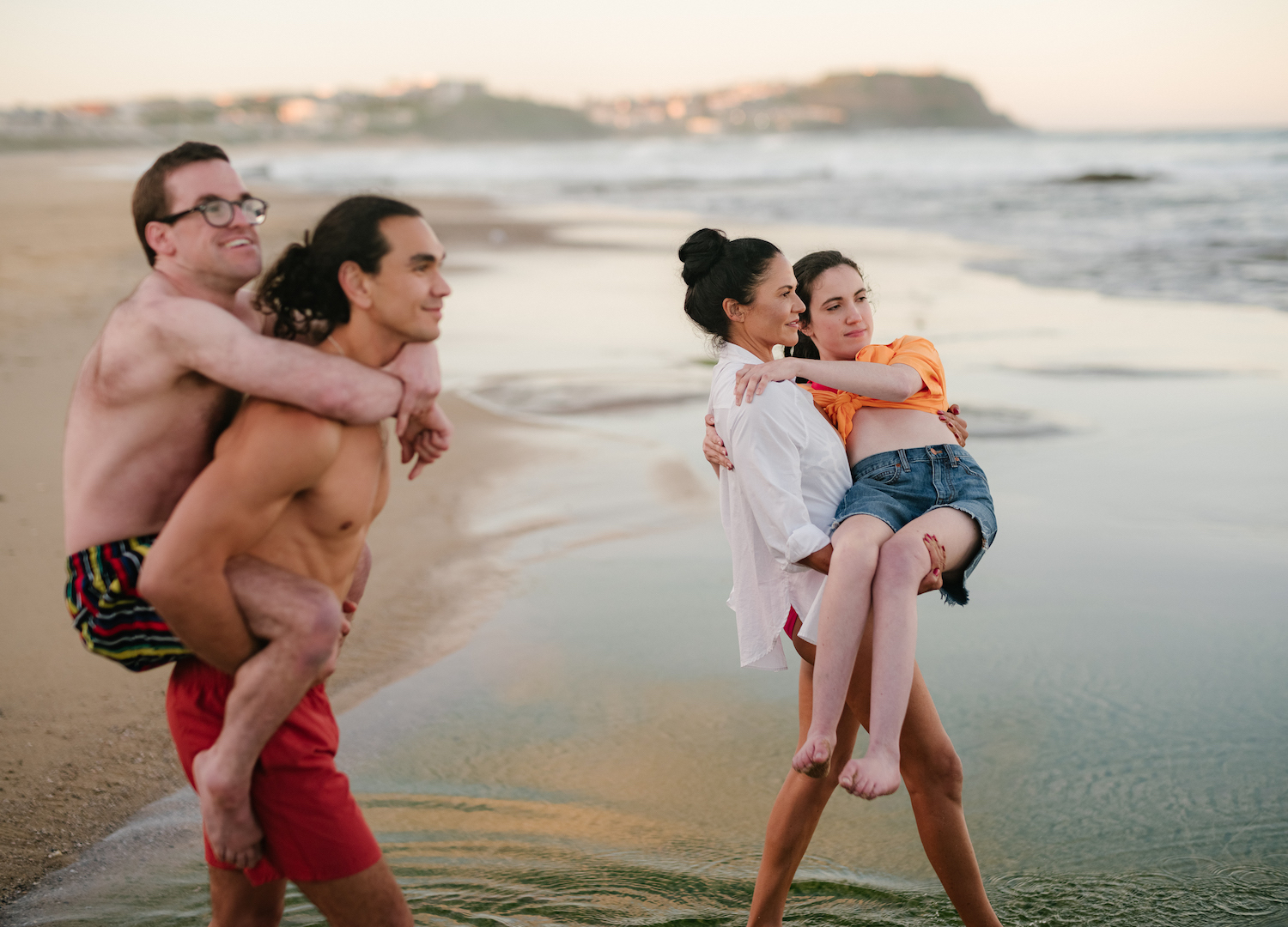
And surely having shows like Latecomers out in the world does help to bring those conversations out into the open too?
I really hope so because that was part of the reason why I said yes ultimately because I know that the opportunity for a show like this is huge, even though a lot of the show cut close to the bone in terms of Sarah’s insecurities and mine are fairly identical. I think representation across mediums like film and television is shown to be powerful. I mean, how many times have we seen videos of kids reacting to the new Little Mermaid and how much that means or looking at Heartbreak High and seeing how well that’s doing and how well that’s being received? Representation has come a long way. We still have a long way to go but I’m really proud that Latecomers gets to be at the front of that.
Latecomers premieres n Australia on Saturday 3 December. Stream the complete season on SBS On Demand.
JOIN OUR MAILING LIST
Brighten up your inbox with our not-too-frequent emails featuring Peppermint-related news, events, competitions and more!
explore
More articles
Look, I don’t want to make anyone panic but IT’S DECEMBER!!! If you’re planning to give homemade gifts, you’re going to have to act fast. …
Hang out with us on Instagram
🌻 The Paddington 🌻
This is a much-loved staple, created for Issue 50 in 2021. We love seeing the #PeppermintPaddingtonTop continually popping up in our feeds!
How stunning is our model Elon MelaninGoddessEfon – she told us it was one of the first times she had been asked to come to a shoot with her natural hair. 🌻
We worked with South African patternmaker Sarah Steenkamp of @FrenchNavyNow_ to create this wardrobe essential – the perfect puff-sleeve blouse. Raglan sleeves make it the ultimate beginner sew, plus the gorgeous back buttons let you add your own personal twist.
Pattern via the link in bio! 🪡
Photos: @KelleySheenan
Fabric: @Spoonflower
Model: MelaninGoddessEfon

“In the 1940’s, Norwegians made and wore red pointed hats with a tassel as a form of visual protest against Nazi occupation of their country. Within two years, the Nazis made these protest hats illegal and punishable by law to wear, make, or distribute. As purveyors of traditional craft, we felt it appropriate to revisit this design.”
Crafters have often been at the heart of many protest movements, often serving as a powerful means of political expression. @NeedleAndSkein, a yarn store in Minnesota, are helping to mobilise the craftivists of the world with a ‘Melt The Ice’ knitting pattern created by @Yarn_Cult (with a crochet pattern too), as a way of peaceful protest.
The proceeds from the $5 pattern will go to local immigrant aid organisations – or you can donate without buying the pattern.
Raise those needles, folks – art and craft can change the world. 🧶
Link in bio for the pattern.
Images: @Gather_Fiber @NeedleAndSkein @a2ina2 @KyraGiggles Sandi.204 @WhatTracyMakes AllieKnitsAway Auntabwi2
#MeltTheIce #Craftivism #Knitting #CraftForChange

TWO WEEKS TO GO! 🤩
"The most important shift is moving from volume-led buying to value-led curation – choosing fewer, better products with strong ethics, considered production and meaningful stories. Retailers have real influence here: what you buy signals what you stand for. At Life Instyle, this means using the event to discover and invest in small-scale, planet-considerate brands that align with your values and your customer’s conscience. Consumers don’t need more things; they need better things, and retailers play a key role in selecting, contextualising, and championing why those products matter."
Only two more weeks until @Life_Instyle – Australia`s leading boutique retail trade show. If you own a store, don`t miss this event! Connect with designers, source exquisite – and mindful – products, and see firsthand why this is Australia’s go-to trade show for creatives and retailers alike. And it`s free! ✨️
Life Instyle – Sydney/Eora Country
14-17 February 2026
ICC, Darling Harbour
Photos: @Samsette
#LifeInstyle #SustainableShopping #SustainableShop #RetailTradeEvent

Calling all sewists! 📞
Have you made the Peppermint Waratah Wrap Dress yet? Call *1800 I NEED THIS NOW to get making!
This gorgeous green number was modelled (and made) by the fabulous Lisa of @Tricky.Pockets 🙌🏼
If you need a nudge, @ePrintOnline are offering Peppermint sewists a huge 🌟 30% off ALL A0 printing 🌟 when you purchase the Special Release Waratah Wrap Dress pattern – how generous is that?!
Head to the link in bio now 📞
*Not a real number in case that wasn`t clear 😂
#PeppermintWaratahWrapDress #PeppermintPatterns #SewingPattern #WrapDress #WrapDressPattern

8 Things to Know About January 26 - from @ClothingTheGaps:
Before you celebrate, take the time to learn the truth. January 26 is not a day of unity it’s a Day of Mourning and Survival for Aboriginal and Torres Strait Islander peoples.
It marks the beginning of invasion, dispossession, and ongoing colonial violence. It’s time for truth-telling, not whitewashed history.
Stand in solidarity. Learn. Reflect. Act.
✊🏽 Blog written by Yorta Yorta woman Taneshia Atkinson.
🔗 Link in bio of @ClothingTheGaps to read the full blog
#ChangeTheDate #InvasionDay #SurvivalDay #AlwaysWasAlwaysWillBe #ClothingTheGaps

As the world careens towards AI seeping into our feeds, finds and even friend-zones, it`s becoming increasingly hard to ignore.
We just wanted to say that here at Peppermint, we are choosing to not print or publish AI-generated art, photos, words, videos or content.
Merriam-Webster’s human editors chose `slop` as the 2025 Word of the Year – they define it as “digital content of low quality that is produced usually in quantity by means of artificial intelligence.” The problem is, as AI increases in quality, it`s becoming more and more difficult to ascertain what`s real and what`s not.
Let`s be clear here, AI absolutely has its place in science, in climate modelling, in medical breakthroughs, in many places... but not in replacing the work of artists, writers and creatives.
Can we guarantee that everything we publish is AI-free? Honestly, not really. We know we are not using it to create content, but we are also relying on the artists, makers and contributors we work with, as well as our advertisers, to supply imagery, artwork or words created by humans. AI features are also creeping into programs and apps too, making it difficult to navigate. But we will do our best to avoid it and make a stand for the artists and creatives who have had their work stolen and used to train AI machines, and those who are now losing work as they are replaced by this energy-sapping, environment-destroying magic wand.
Could using it help our productivity and bottom line? Sure. And as a small business in a difficult landscape, that`s a hard one to turn down. We know other publishers who use AI to write stories, create recipes, produce photo shoots... but this one is important to us.
`Touch grass` was also a Merriam-Webster Word of the Year. We`ll happily stick with that as a theme, thanks very much. 🌿








